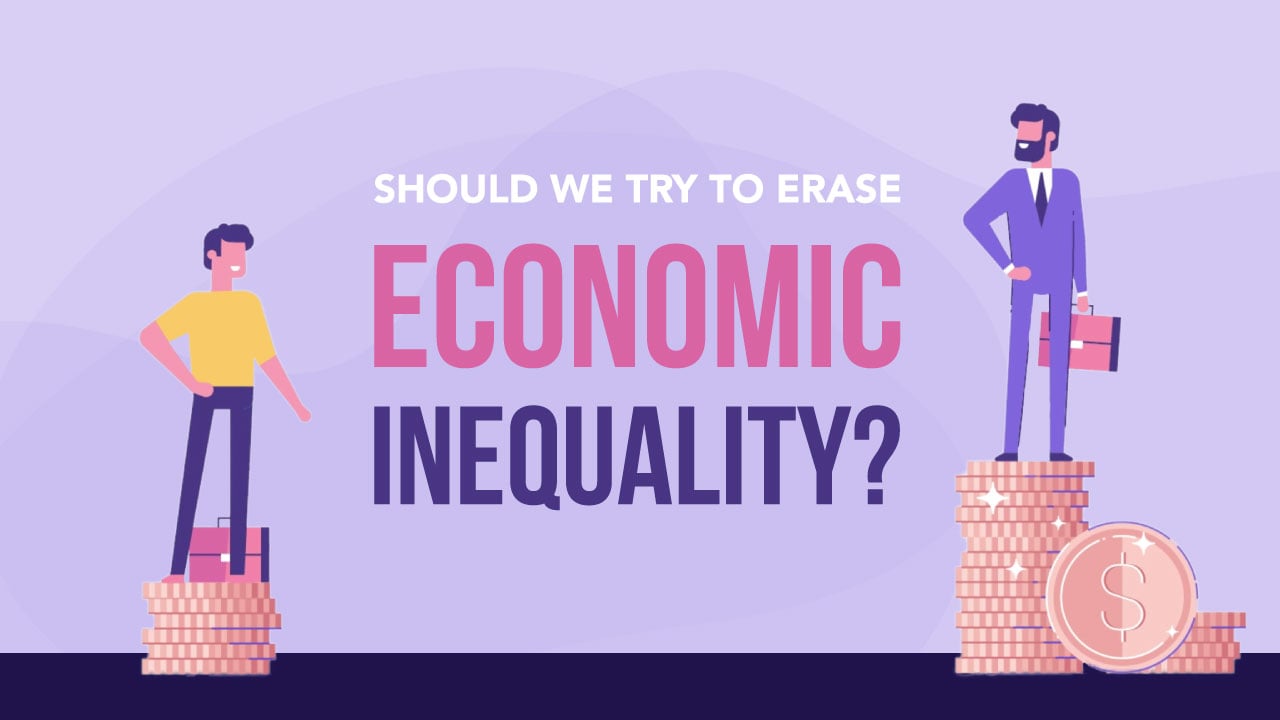You’re in a conversation and someone says, “Capitalism is all about rewarding greed.”
What would you say?
When many people think about business people in a market economy, they think of characters in movies – like Ebenezer Scrooge, or the bankers in “Mary Poppins,” or Gordon Gekko in the movie “Wall Street.” These stereotypes reinforce the idea that business and capitalism are all about the rich getting richer at the expense of the poor. Even more than just the idea that some people are greedy, these stereotypes reinforce the idea that greed is the very essence of capitalism.
If capitalism really were all about greed, that would be a big problem for Christians who believe greed is, well, not good.
These stereotypes, however, are not reality. Capitalism is not all about greed and here are 3 reasons why:
1. Taking responsibility for your own interests is not the same as selfishness.
2. Capitalism encourages altruism.
3. Capitalism can foster virtue and channel even our bad motivations into actions that benefits others.
You’re in a conversation and someone says, “Capitalism is all about rewarding greed.” What would you say? When many people think about business people in a market economy, they think of characters in movies – like Ebenezer Scrooge, or the bankers in “Mary Poppins,” or Gordon Gekko in the movie “Wall Street.” These stereotypes reinforce the idea that business and capitalism are all about the rich getting richer at the expense of the poor. Even more than just the idea that some people are greedy, these stereotypes reinforce the idea that greed is the very essence of capitalism. If capitalism really were all about greed, that would be a big problem for Christians who believe greed is, well, not good. These stereotypes, however, are not reality. Capitalism is not all about greed and here are 3 reasons why: Number 1: Taking responsibility for your own interests is not the same as selfishness. Adam Smith, the Scottish moral philosopher, wrote a lot about what he called “self-interest” and the role that plays in business. He famously wrote: “It is not from the benevolence of the butcher, the brewer, or the baker that we expect our dinner, but from their regard to their own interest.” But Smith wasn’t defending selfishness. His point is that the butcher doesn’t have to visualize world peace, or think about how much he loves you, the customer, in order to serve you. His motivation to pay his rent, or pay for the braces his daughter needs is enough to drive his business. It makes sense that he’d be concerned about those things. After all, he’s responsible for them. His self-interest is not the same as selfishness. In the same way, a carpenter could be motivated by his self-interest to buy his wife an anniversary gift or to pay for his family’s health insurance. In order to accomplish those goals within a market system, he has to do something that serves others, not just his family. Which leads to the second point. Number 2: Capitalism encourages altruism. If that carpenter is to succeed, he will need to figure out how to meet your needs. His actions and orientation are towards his customers. His work is directed towards others. In that sense, his business is altruistic. Altruism is when we act for the benefit of others. There are, of course, greedy people in every profession, including every area of business. But there are greedy people in socialist systems too, often those in charge with unchecked power! The question isn’t whether there are greedy people, it’s whether or not in a market economy, business and services are inherently about greed in some unique way. And the answer is, “no.” Think about some of the actual businesses you encounter every day: grocery stores, your barber, the dentist, a favorite restaurant or clothing store. You can choose where you buy meat, or vegetables, or socks, or t-shirts. The stores and businesses we choose offer us something we need or want at a price we are willing to pay. In a market economy, businesses provide ways for people to pursue their legitimate interests by serving others. Greed exists everywhere and in every society. But market economies force businesses to be oriented towards the needs of others. Which leads to our third point. Number 3: Capitalism can foster virtue and channel even our bad motivations into actions that benefit others. In a market economy, success requires a host of virtues. Entrepreneurs must have patience and discipline to save their wealth rather than consume it all. They also must have courage to take calculated risks with what they save instead of hoarding it. Rather than being self-absorbed, entrepreneurs must anticipate the needs of others. Through hard work and disciplined choices, they discover new ways of creating and combining resources in order to offer goods and services that serve other people. And, they must have faith in their neighbors, their partners, their society, and their employees for their endeavors to work. To thrive in a market economy, people must develop and practice patience, courage, hard work, creativity, and trust. In a system where self-interest is served by providing what someone else wants at a price they’re willing to pay, you have to act altruistically even if you don’t feel altruistic. Of course, God doesn’t just care about outcomes. He cares about motives as well. But in a broken world, we can’t just depend on people’s sense of charity and goodwill for our daily needs. Better to have a system that channels our motives, both good and bad, selfless or greedy, in a way that benefits others. So the next time you’re in a conversation and someone says that capitalism is all about greed, remember these 3 things: Number 1: Taking responsibility for your own interests is not the same as selfishness. Number 2: Capitalism encourages altruism. Number 3: Capitalism can foster virtue and channel even our bad motivations into actions that benefits others. For What Would You Say, I’m Brooke McIntire.
Richards, Jay W. Money, Greed, and God: Why Capitalism is the Solution and Not the Problem. New York, NY: HarperCollins, 2009.
Thank you to Dr. Jay Richards for serving as the consultant for this video.




